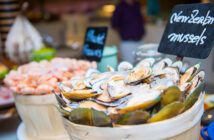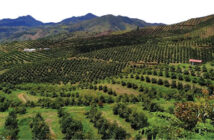A University of Waikato heat transfer expert says the changing regulatory environment means New Zealand chilled meat exporters face new challenges.
Dr James Carson of the School of Engineering says the shift to slow steaming for environmental and fuel economy reasons has lengthened journey times for New Zealand exports to key markets – and this has put New Zealand’s lucrative European chilled meat market in jeopardy.
“We’re always looking for improved efficiencies to ensure New Zealand meat exports arrive at their destination in top condition. Temperature is a key variable for quality and safety, so we need to look in detail at the impact of slow steaming on refrigeration parameters. Mathematical modelling of the chilling and storage processes can enable us to design for greater energy efficiency and tighter quality control.”
Dr Carson is heading to the UK in October on a fact-finding visit funded by the 2012 C. Alma Baker Trust Fellowship, which facilitates travel between New Zealand and the UK for senior researchers in the fields of agriculture, agriculture-related technologies, or the study of rural society.
He’ll be visiting research institutions in London, Bristol, Cambridge and Yorkshire to see the work being done there on refrigeration technology, and to bring back ideas that will benefit New Zealand meat exporters.
“New technology means shipping companies are now able to monitor and control individual shipping containers, so we could get a lot smarter in optimising conditions for our chilled meat exports,” he says.
Dr Carson is currently collaborating with AgResearch scientists from the former Meat Industry Research Institute of New Zealand (MIRINZ) on improving refrigeration techniques.
The C. Alma Baker Trust is based in the UK and promotes agricultural links with New Zealand.





























































































